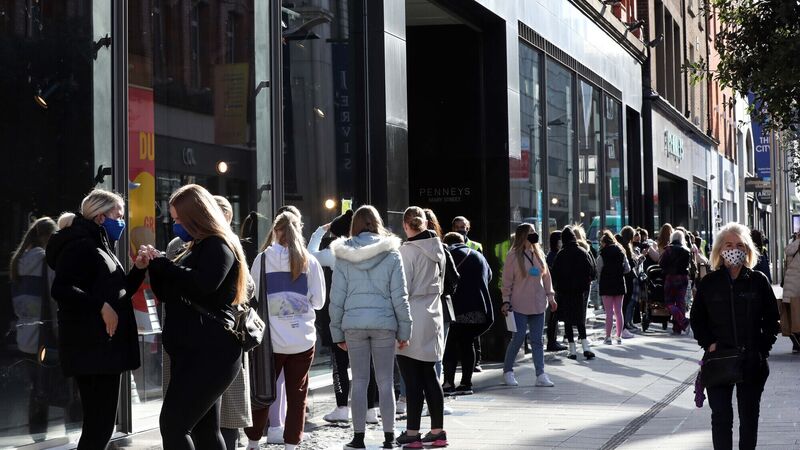Terry Prone: Crowds throng open spaces to lap up liberation post-lockdown

Queues of people outside Penneys store on Henry Street Dublin on the first day of shops reopening on May 10. Picture: Leah Farrell/RollingNews.ie
Madam Roland and Tony Holohan have something in common, not including being guillotined, a privilege enjoyed only by the former, who murmured, just as she was about to be done in by the Revolution, “Oh, Freedom, what crimes are committed in your name…”
Dr Holohan’s weekend tweet about crowds in Dublin city centre had a flavour of Madam Roland.












